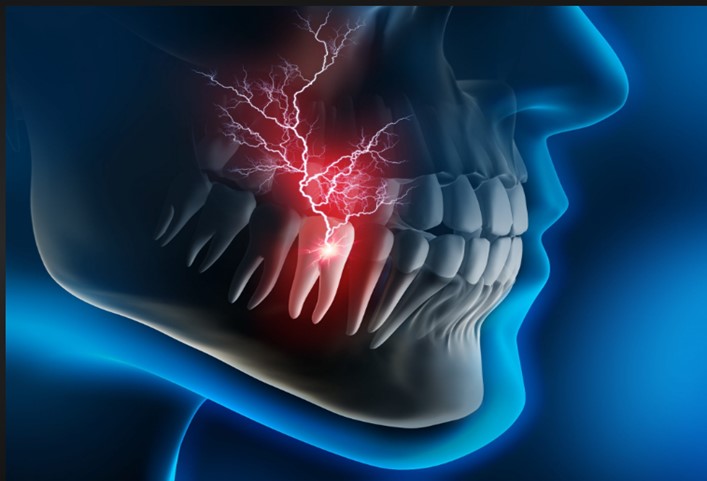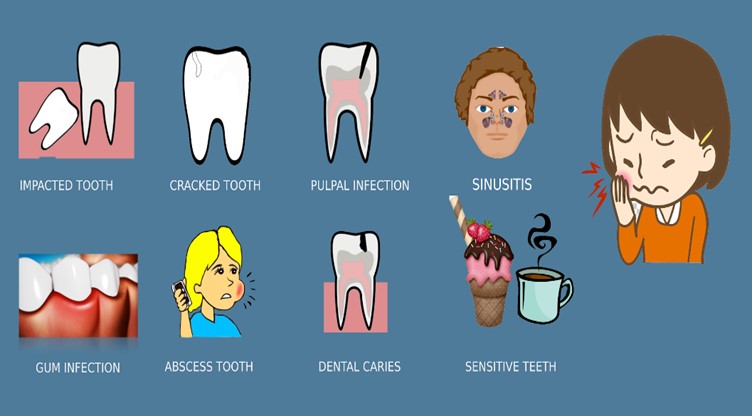Dr. Chandana Annyam (BDS)
Published on - 20 Nov 2023

A toothache is more than just a pain in the tooth; it can be a relentless and excruciating experience that affects our daily life. It is one of the common dental problems experienced by many people. Few things can disrupt daily life as quickly as a toothache. Whether it's a sharp, sudden pain or a persistent ache, toothaches demand attention and prompt action.
A toothache is any pain in or around your teeth that may be caused by:
1. Dental Decay (Cavities): One of the most prevalent causes, dental decay occurs when bacteria in the mouth produce acids that damage tooth enamel, leading to cavities. As the decay progresses, it can expose the sensitive inner layers of the tooth, causing pain.
2. Gum Disease (Gingivitis or Periodontitis): Inflammation of the gums due to bacterial infection can lead to gum disease. Advanced stages of gum disease can result in the deterioration of the supporting structures around the tooth, causing pain and discomfort.
3. Dental Abscess: An abscess is a pocket of pus that forms in the tooth or gums, usually due to untreated decay or infection. The accumulation of pus can exert pressure on the surrounding tissues, resulting in intense pain.
4. Tooth Fracture or Cracks: Physical trauma or biting into hard substances can cause a tooth to crack or fracture. The exposed inner layers of the tooth can be sensitive and painful.
5. Impacted Wisdom Teeth: Wisdom teeth, or third molars, can sometimes emerge improperly, causing impaction. This condition can lead to pain, swelling, and discomfort in the back of the mouth..
6. Dental Erosion: Acidic foods and beverages, as well as conditions like acid reflux, can erode tooth enamel over time. The exposure of sensitive dentin underneath may cause tooth sensitivity and pain.
7. Sinus Infections: In some cases, pain perceived as a toothache may actually be referred pain from sinus infections. The proximity of the sinuses to the upper teeth can result in toothache..
8. Teeth Grinding (Bruxism): Persistent grinding or clenching of teeth, often during sleep, can cause tooth sensitivity and pain. Over time, it may lead to dental damage.
9. Orthodontic Treatment: People undergoing orthodontic treatments, such as braces, may experience temporary toothache as the teeth shift and adjust..
10. Temporomandibular Joint (TMJ) Disorders: Dysfunction of the jaw joint can cause pain in the jaw, which may be perceived as toothache, especially in the lower jaw.

It is important to identify the underlying cause to determine the most appropriate treatment and to consult with a dentist if you experience persistent toothache, as timely intervention can prevent further complications. Regular dental check-ups and good oral hygiene practices are key to preventing many of these toothaches.
Published on - 20 Nov 2023
This article is intended to promote understanding of and knowledge about general oral health/ treatment topics. It is not intended to be a substitute for professional advice, diagnosis or treatment. Always seek the advice of your dentist or other qualified healthcare provider with any questions you may have regarding a medical condition or treatment.